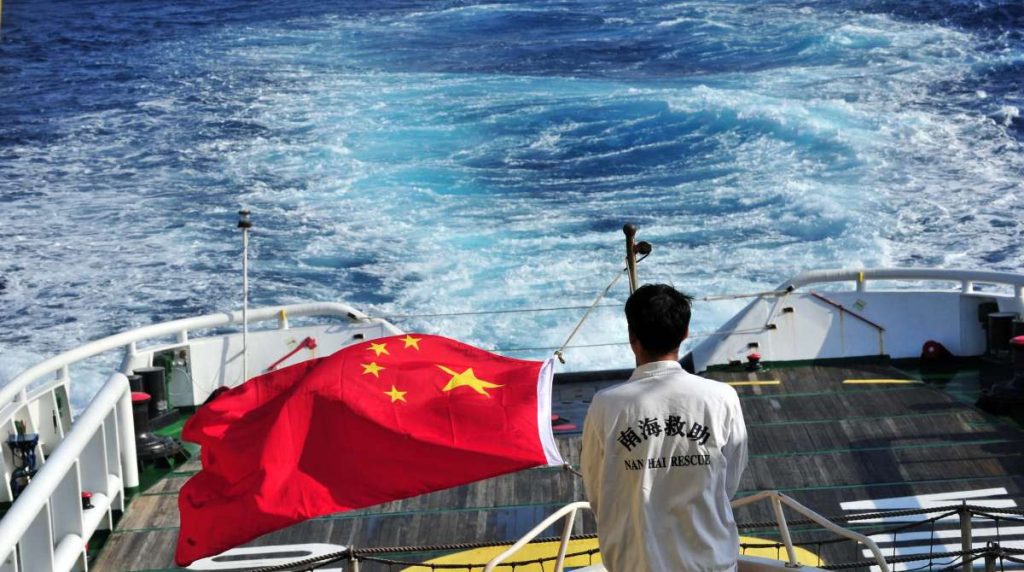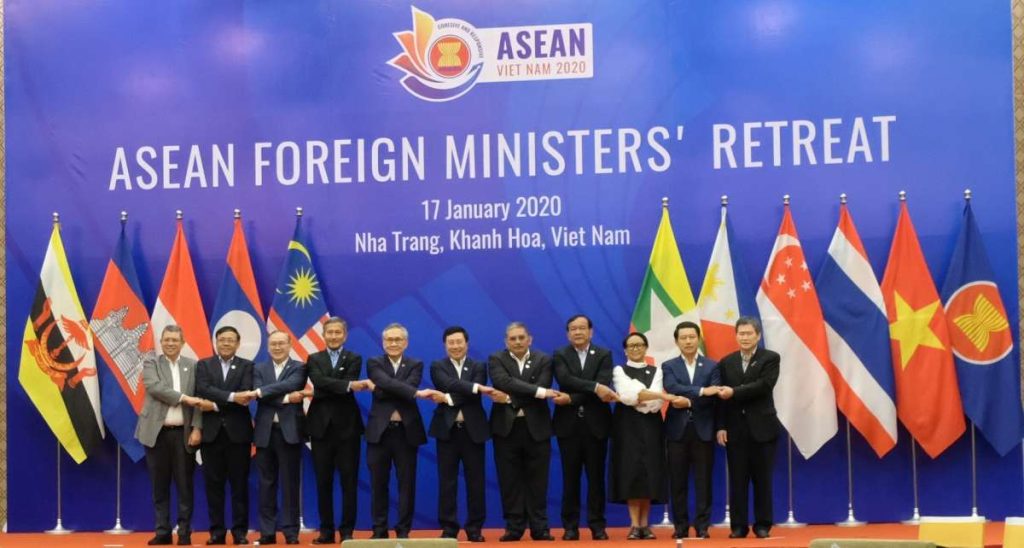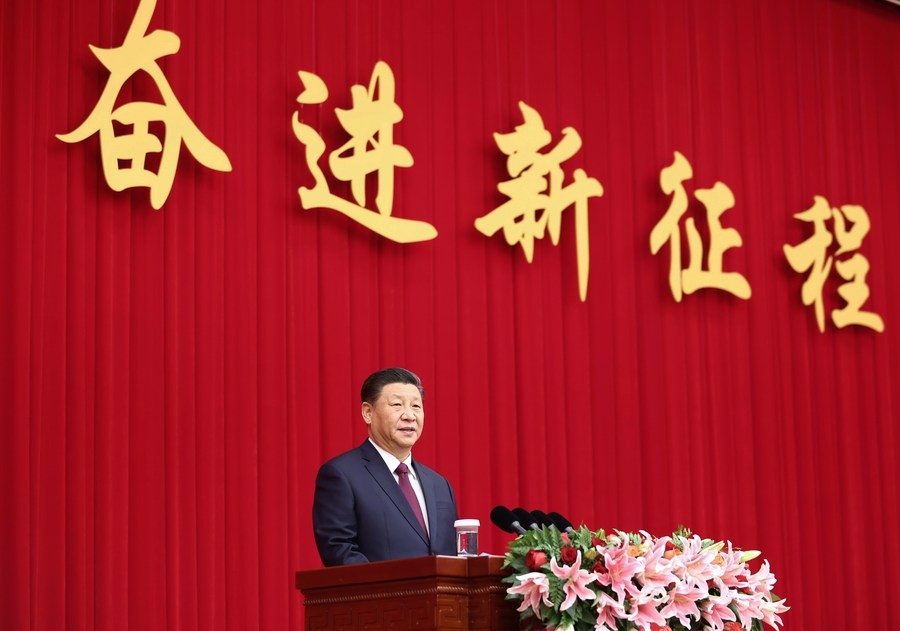Geographically, the nomenclature ‘South China Sea’ makes no sense, as the territories comprising South China are not fronting the waters of that important waterway, writes Prof. Madhav Das Nalapat

In its relentless effort to ignore international law and expand its boundaries, the CCP (or Chinese Communist Party, as the organisation prefers to be known) uses any excuse that it can either locate or invent to justify such aggression. Sometime in the past, almost certainly as a consequence of other countries going by maps originating from within China, what ought to be known as the ASEAN Sea was named the South China Sea.
Geographically, such a characterisation makes no sense, as the territories comprising South China are not fronting the waters of that important waterway. Instead, it is countries comprising ASEAN that front its waters, which is why the term “ASEAN Sea” ought to be adopted by cartographers in place of “South China Sea”. Given the wariness that members of ASEAN barring the Philippines deal with CCP expansionism, it comes as no surprise that even that group of countries avoids the suggestion that the so-called “South China Sea” be more accurately renamed as the ASEAN Sea.

In fact, such a shift would be entirely consistent both with the facts as also with international law. Whenever the CCP talks of “upholding international law”, what that means in practice is the PRC doing whatever the CCP decides is in its interest, and ignoring any other consideration, including international law. After the Philippines succeeded in getting a verdict from the relevant international body that a swathe of ocean and island space was within its territorial rights, that judgment was swept aside by Beijing as being of no consequence. It is unfortunate that in effect, not just other members of ASEAN but the broader international community ignored the manner in which the PRC was trampling on international law in the matter.
In effecting a change in nomenclature of the nature suggested above, it is the US that ought to take the lead, and perhaps the day is not far off when the House of Representatives and the Senate votes affirmatively in favouring of giving the ASEAN Sea its correct name, and sends the legislation up to the President of the US for his signature. At the very least, such a move would draw more attention by major powers of the need to roll back the manner in which the PLA has sought to establish a chokehold over the ASEAN Sea. Should there be any blockage of commerce in that waterway by the PRC military, the same would constitute a hostile act towards the international community. It would need to be met with countervailing force so as to ensure that the waters of the sea remain open to all countries, including of course the PRC.
It needs to be said that in its response to the ongoing Cold War 2.0 with CCP-controlled China, the US establishment has been hesitant, almost timid, in a manner that is the opposite of its approach towards Cold War 1.0 with the USSR. The recent passage by the US Congress of legislation involving Tibet is an indication that such timidness may finally get replaced with an approach essential not to lose but to prevail in the new Cold War, just as took place in the previous Cold War. The CCP has taken away two-thirds of the territory of Tibet and affixed it to provinces in China. Hence the international community needs to ensure that maps produced within major democracies reflect the correct boundaries of Tibet rather than what the CCP claims to be the boundary of what it ironically terms the Tibetan Autonomous Region.

What is meant by the use of the term “autonomous” is that the region is governed autonomously from the Tibetan people. Indeed, the demographics of the whole of Tibet have been altered in a transparent effort to ensure that the Tibetan population gets reduced to a smaller and smaller minority in their own land, exactly as is happening in other parts of the PRC where ethnic minorities once formed the majority of the population. Mahatma Gandhi advised the British people to open their island to Hitler rather than resist him, for, in his view, Soul Force would ensure that the dictator of Germany during 1933-45 would undergo a conversion in his approach to humanity, and rediscover the humanity in himself.
Where Tibet is concerned, the gentle approach of His Holiness the XIV Dalai Lama of Tibet, since the exile of His Holiness in 1959, has been met not by reciprocity from the CCP but in a steady erosion of the territory, traditions and the very identity of Tibet. The flame of the ancient and wondrous culture of Tibet has however been continuing to give its light in Dharamshala, where His Holiness has been residing since 1959, a flame that is to the benefit of human civilisation. The CCP has insisted that His Holiness acknowledge the new, much diminished boundaries of Tibet before holding talks, a condition that it knows would be impossible for the Dalai Lama to accept.

President Biden will need to sign into law the legislation on Tibet that has been passed in the US House of Representatives a short while ago, assuming the Senate stands by the Tibetan people in the way the House of Representatives have. Both the Senate and the White House are on test in the matter, and countries that are alarmed by PRC expansionism are looking to see whether Washington has the same resolve in the new, and deadlier, Cold War as was shown in the previous contest with the USSR.
People in the PRC have seen the way in which the economic situation has been worsening as a consequence of the aftershocks generated by the international and domestic aftershocks caused by the numerous acts of expansionism and other forms of aggression by the CCP leadership. Such aggression is entirely contrary to the innate culture of the Chinese people, yet so far, lack of resolve on the part of the US in particular has allowed the CCP free rein. Cold War 2.0 with the PRC requires even more of the same commitment and strength of will that was needed to win Cold War 1.0 with the Soviet Union. Giving the ASEAN Sea its rightful name would be a good way to strengthen the process of resisting rather than indulging CCP expansionism and contempt for international law.
ALSO READ: US envoy’s JNU visit reportedly postponed amid campus protest

Leave a Reply